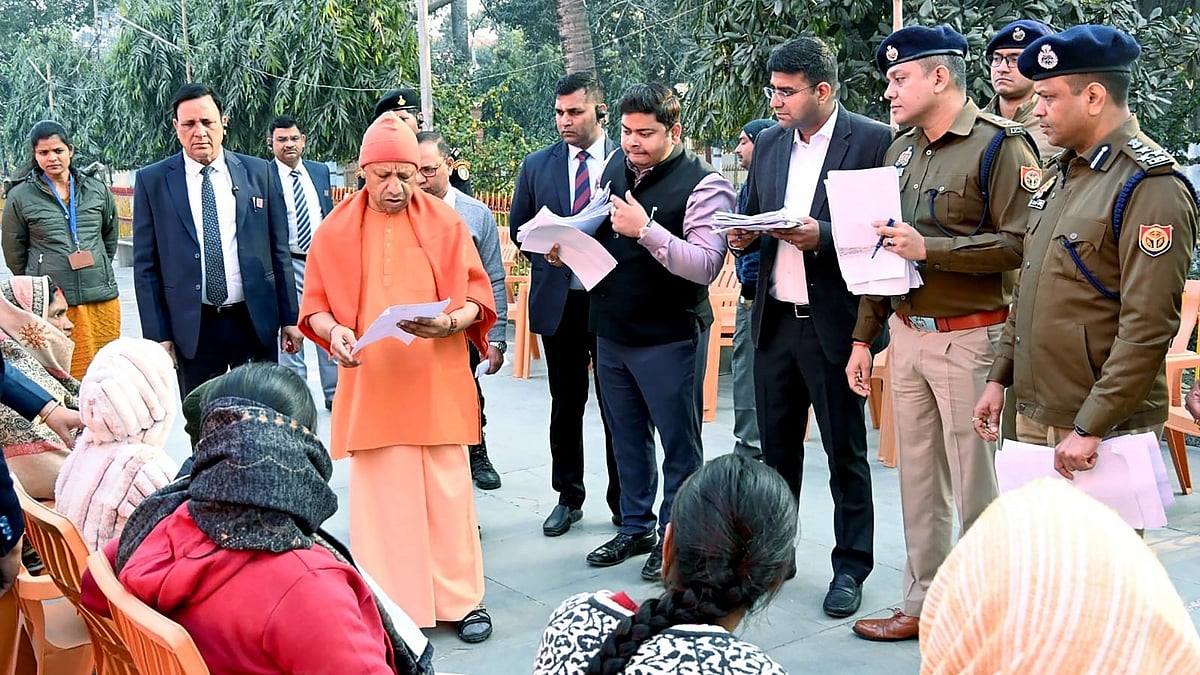Self-management or managing self is possibly the most important principle to follow in life. Human beings particularly in today’s context do not live in isolation or alone. They are always in company of some or the other: spouse, family members, colleagues, friends, acquaintances, among others. And in the broader context, they are always in companion with other creatures and beauties of nature. And more than 80 per cent of active life of an individual is involved in interacting or communicating with people around: sometimes vocal and other times silent modes of interaction.
During this course of interaction or taking a view of things outside, the normal tendency is to throw blame on others, if something does not happen to the expectations. “She is arrogant”, “He does not take care of me”, “They do not even smile at me or wish me when we meet” are oftentimes the observations. Fault always lies on the “other person” and “not on me”. This is a usual human psychology known as “external bias”. We usually do not even think that there could be some mistake or problem within.
Concept of Sell Management:
This is the background under which the concept of self-management becomes important. Self-management is important not only for managing oneself but also managing relationships with others. In any interpersonal relationship / transaction, there are fundamentally four important thought processes:
1. I am what I am
2. I have to accept myself as I am
3. Oher person is what he / she is
4. I have to accept him / her as he / she is
If these are fundamental premises of any relationship in life, total onus of managing the same rests on oneself. An individual has to manage the transactions and consequential relationship based on how best one can manage the same considering limitations given in fundamental premises mentioned above. Therefore, managing self and adapting self to manage others becomes the key.
Managing self is a long journey comprising of several steps including self-exploration (trying to evaluate self), self-awareness (attempt to understand who I am), self-audit of own strengths & weaknesses (identify pluses and minuses of oneself) and self-discovery (understanding self). The final output of self-discovery is a very difficult one; it is a realization of one’s own identity & purpose of life. True realization of this self-discovery leads to wisdom, positive belief system, right attitude and appropriate behavior & interaction with others.
Can It Be Achieved:
It is often asked whether it is ever possible to achieve status of self-discovery. The answer is both yes and no; despite best efforts, one may not be able to reach the ultimate aim. But self-management as a process is important as it leads to developing the right beliefs and correct attitude. And therefore, through this process, we develop ourselves as admirer of the world rather than its critic. Self-management helps us to look at positive side of everything even in gloomiest time. And therefore, it is important for us to understand and inculcate the practice of self-management.
Nine (9) behaviors / practices that may help in process of developing self-management are:
1. Remain focused & engaged all the time
2. Lead a life without regret
3. Bring congruence of head and heart while taking any decisions
4. Be optimist
5. Look and interact with others with empathy
6. Develop listening skills
7. Live life with a sense of detachment and minimalism
8. Constantly look within for self-improvement
9. Always look for means to practice self-enforcement
Applicability for Elders:
The concept of self-management is equally, if not more, important for elders. Being relatively weaker both in terms of physical strength and mental agility, elders usually develop tendency of negative attitude about themselves as well as the surroundings. Anxiety and loneliness aggravate the problem. They look at everything with suspicion and negativity. Principles and practices of self-management will enable them to overcome the negative attitude and improve their self-belief. This might also help in the process of happy aging through enhancement in self-esteem. While physical as well as cognitive abilities are bound dwindle with age, self-management will help them to get reassurance in their ability to lead an independent and positive life.
Self-management is thus an imperative aging tool in this complex world. This possibly will also help the elders to get spiritually inclined and thus become mentally stronger.









